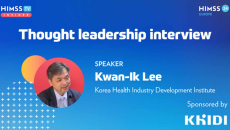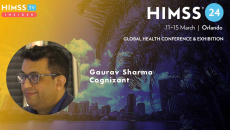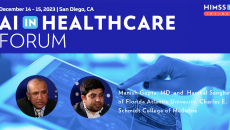Precision Medicine
Offered in partnership with Novo Nordisk Foundation, the fellowship will focus on technologies that analyze vast amounts of data to increase diagnostic accuracy, speed personalized medicine and improve clinical trials.
SPONSORED
The Korea Health Industry Development Institute's director Kwan-Ik Lee talks about how the institute can help support countries struggling with healthcare digitization and discusses South Korea's two major precision medicine projects.
Continuous Precision Medicine's data helps providers make sure the appropriate amount of pain medication is administered to patients for pain management. Steven Walther, the company's CEO, explains more.
Sharing real-world patient data with researchers could help optimize clinical trials and drive discoveries in precision medicine, says Gaurav Sharma, senior director, global client partner at Cognizant.
Virtual care is comparable to in-person substance use disorder treatment and lowers the cost of treatment for substance misuse, said Dr. Yusuf Sherwani, CEO and cofounder of Pelago.
The AWS Imagine Grant is open to registered nonprofit organizations using cloud technology to advance their research across the spectrum of childhood diseases – from heart conditions to genetic disorders.
The surgical robotic system has also been introduced in Nepal for the first time.
The genetic testing company used GPT-4o to create an artificial intelligence-driven tool that helps doctors create screening plans based on patient data, including personal risk factors and family history.
The precision medicine company will integrate its rWGS technology with Epic, giving health systems using its EHR the ability to gain genomic insights for pediatric and neonatal patients.
Dr. Manish Gupta and Harshal Sanghav of the Florida Atlantic University Charles E. Schmidt College of Medicine discuss the challenges of AI rollouts in clinical care and review how the health system uses patient pre-performance data for surgical planning.










